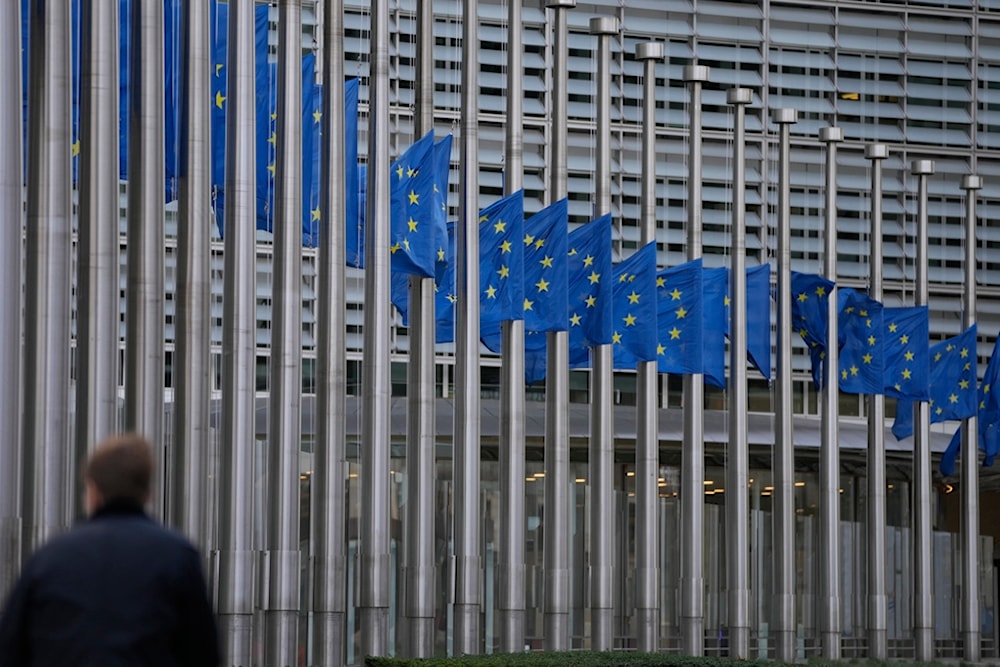EU confirms 13th package of anti-Russian sanctions
The European Union has confirmed a 13th package of sanctions on Russia targeting individuals, businesses, travel, and export bans.
-

A man walks past European Union flags at half staff, in front of European Union headquarters in Brussels, Thursday, December 28, 2023 (AP)
The European Union has confirmed its 13th package of sanctions on Russia, its presidency announced on Wednesday.
🚨Update: Representatives of the European Union countries agreed on the 13th package of anti-Russian sanctions, which will come into effect on February 24, according to a statement posted on social media of the Belgian Presidency of the EU Council! pic.twitter.com/RubjOdGjlW
— US Civil Defense News (@CaptCoronado) February 21, 2024
The package will be put into effect by February 24, on the second anniversary of the start of the war in Ukraine. The existing packages already target different sectors like trade, travel, and business, including individuals and companies.
The 13th package is not different. At least 200 individuals have been sanctioned and banned from traveling to the EU, and individual and business assets will also be frozen.
"With 2,000 listings in total, we keep the pressure high on the Kremlin. We are also further cutting Russia’s access to drones," European Commission President Ursula von der Leyen said on X, in a post calling for the "degrading" of Russia.
I welcome the agreement on our 13th sanctions package against Russia
— Ursula von der Leyen (@vonderleyen) February 21, 2024
⁰We must keep degrading Putin's war machine.
⁰With 2000 listings in total, we keep the pressure high on the Kremlin.
⁰We are also further cutting Russia’s access to drones. https://t.co/AfSxsEUB8x
German Foreign Minister Annalena Baerbock also stated that the supply of UAVs to Russia will be halted. Reports have detailed that the anti-Russia sanctions will also target international companies in China, Turkey, India, and Serbia, under the allegation of cooperation with Russia against Ukraine.
China's Foreign Ministry spokesperson Mao Ning affirmed on Tuesday that her country will take the appropriate and necessary measures to protect Chinese firms against possible sanctions.
"China will continue to take necessary measures to resolutely protect the legitimate rights and interests of Chinese enterprises," Mao said.
A lost cause
Russia's Ambassador to Paris, Alexey Meshkov, told Sputnik that an extensive web of French businesses that are not publicly enlisted or affiliated with the United States are still active in Russia.
In a statement, Meshkov said that larger companies that do not engage in the Initial Public Offering (IPO), or stock launch, and smaller business enterprises that are not associated with the US, resume business as usual. "Those that somehow depend on the United States or the dollar, undoubtedly, are afraid," he added.
Meshkov also speculated that the French would draw boundaries if the package neared the Russian energy sector, slamming the West's entire anti-Russia sanctions rationale as illogical.
It is not only France that has been rejecting the imposition of sanctions on Russia, but several other EU members as well.
One of the most prominent and outspoken is Hungary, which has been clear on its stance on Russia's sanctions, saying that they have been detrimental to Europe's interests, and calling for their end.

 3 Min Read
3 Min Read











